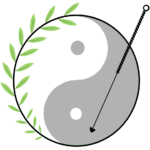 Premenstrual syndrome (PMS) refers to physical or emotional symptoms that typically occur about 5 to 11 days before a woman starts her monthly menstrual cycle.
Premenstrual syndrome (PMS) refers to physical or emotional symptoms that typically occur about 5 to 11 days before a woman starts her monthly menstrual cycle.
Researchers at Kyung Hee University, in Seoul, Korea reviewed the evidence.
First, the details.
- 9 studies were systematically reviewed.
- Only 2 studies described how the women were assigned to a treatment group.
And, the results.
- 4 studies reported a significant reduction in PMS symptoms with acupuncture vs pharmacologic treatment.
- 2 studies reported improvements in primary symptoms in the acupuncture and herbal medicine groups vs the start of the study.
- Only 2 studies where patients were randomly assigned to a treatment group reported acupuncture-related side effects, including a case of a small subcutaneous hematoma (bleeding).
The bottom line?
Although the studies included in the review suggest that acupuncture may be beneficial to women with PMS, there’s “insufficient evidence to support this conclusion due to methodological flaws in the studies,” concluded the authors.
Deficiencies in the study designs included sequence generation, concealment of allocation, blinding and outcome measures.
In a more broad-based review of acupuncture in the Korean literature, researchers from Korea and the UK complained that studies often used more than 2 therapies simultaneously, making it difficult to evaluate acupuncture’s effects alone.
7/25/10 15:28 JR